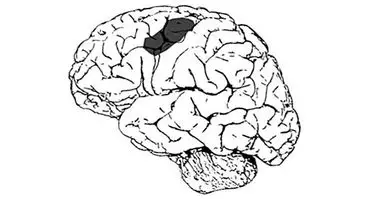Socratic Method: what it is and how it is applied in psychology
We all have a lot of questions in our heads that we would like to find a solution for. And finding an answer to them is the least complex. We often look for the solution in others, even though what we really need is to find our own answer.
With regard to major philosophical issues such as ethics or morality or even at the level of therapy, a method whose origins go back to Ancient Greece is useful. Specifically, to the figure of Socrates. It is about the Socratic method , which we are going to talk about throughout this article.
- Related article: "The contributions of Socrates the Greek to Psychology"
The Socratic method: what is it?
We understand by Socratic method a methodology through which it is proposed that the human being is able to mature and mobilize their resources and reflect on the problems that plague them. The objective of the Socratic method or the Socratic dialogue is not to give an answer to the questions of others, but to favor that this person may be able to deepen their own psyche and reflection in order that this development its own knowledge by itself.
In itself, the Socratic method is rather a dialogue between two or more people is one that guides the other, through a series of questions and using resources such as irony, towards the resolution of your doubts and conflicts . This guide is purely assistance, being in the end the subject who finds the solution by itself. In fact, technically it is not even necessary that a response, it is also valid to admit ignorance about a specific fact or aspect.
Generally the questions that arise from the subject are answered by another prevenient question of who is applying the method, in such a way that the thought of the subject is conducted to whom it is applied in a specific direction without changing their ways of thinking directly. .
A) Yes, The main thing in this method is the use of inductive type questions , making use of own resources in the desired direction. As for the type of questions in question they tend to be relatively simple, based on three main particles: What, How and For what.
The basic operation is first to choose a specific topic or statement that is considered true and examine it little by little in such a way that it is falsified and refuted , and subsequently generate new knowledge about the subject in question.
- Maybe you're interested: "70 phrases of Socrates to understand his thought"
The origin: maieutics
The origin of the Socratic method is found in the figure of who takes the name: Socrates, the Greek philosopher This author elaborated a dialectical method with the purpose of helping to find one's own truth, or even defend minority positions.
The process was relatively simple to explain, although its implementation is more complicated than it seems: First irony was used in order to get the student or person with whom dialogue, asking a series of questions about the meaning of a premise previously chosen so that gradually began to doubt this and even end up admitting ignorance about the subject and can even reduce it to absurdity.
After that, maieutics was used, or the Socratic method itself: the interrogator went on to guide the thought process of the interlocutor through dialogue , and the realization of relatively simple questions, proposing and using the resources of the subject to generate a new truth or opinion more specific to the individual in relation to the premise in question, a new knowledge of what is really known.
Application of the Socratic method in psychotherapy
The Socratic method, although it has an ancient origin, is still valid today, in different forms. The world of education is one of the areas in which it can be applied, being another of them the health field. Within the latter, we must emphasize its use within clinical and health psychology .
The application of the Socratic method is common in psychotherapy, independently of the theoretical model, since it is proposed as a way to mobilize and take advantage of the patient's own resources to achieve their improvement.
One of the psychological currents that most uses it is cognitive-behavioral, being the most easily identifiable example of the use of the Socratic method the questioning of maladaptive beliefs : the subject exposes a strongly rooted thought or belief that generates suffering or discomfort (or alters its behavior generating it to others), such as the idea of being useless.
The therapist can inquire into what it means to be useless, in what situations this idea appears, what consequences it would be or the fears that may lie behind, until reaching a point where the subject could not do a deeper introspection (to a large extent, Techniques are used, such as the descending arrow, which seeks to go deeper and deeper into what is behind a particular thought or belief). After that, the session could be redirected asking if there could be alternative interpretations and later, the patient would be sought to reconstruct his vision of reality in a more adaptive way with his own resources. It is a process linked to cognitive restructuring.
Likewise, another type of therapy that employs the Socratic method is logotherapy, within phenomenological-existentialist models. In this case the Socratic method is used as one of the main techniques used to reactivate the patient's resources and achieve a sense of life. In this sense it contributes to the subject's self-discovery, generate alternatives, be responsible for their own choices and try to transcend. Values and perceptions are worked on, among many other concepts.
These are just two examples of therapies that employ the Socratic method. However, its use is very common in practically all types of therapies within clinical psychology.
Bibliographic references:
- Eliécer, J. (2005). The Socratic method in higher education. National Pedagogical University.
- Martínez, E. (s.f.). Socratic dialogue in psychotherapy focused on meaning. Socieddad for the Advancement of the Psychotherapy Focused on the Sense. Available at: //www.saps-col.org/saps/new/wp-content/uploads/2016/02/The-dialogo-socr%C3%A1tico-en-la-psicoterapia-centrada-en-el-sentido .pdf.
- Partarrieu, A. (2011). Socratic dialogue in cognitive psychotherapy. Third International Congress of Research and Professional Practice in Psychology. XVIII Research Days. Seventh Meeting of Researchers in Psychology of MERCOSUR. Faculty of Psychology. Buenos Aires' University. Buenos Aires.
- Segura, C. (2017). The Socratic method today. For a dialogical teaching and practice of philosophy. Madrid: School and May.



















